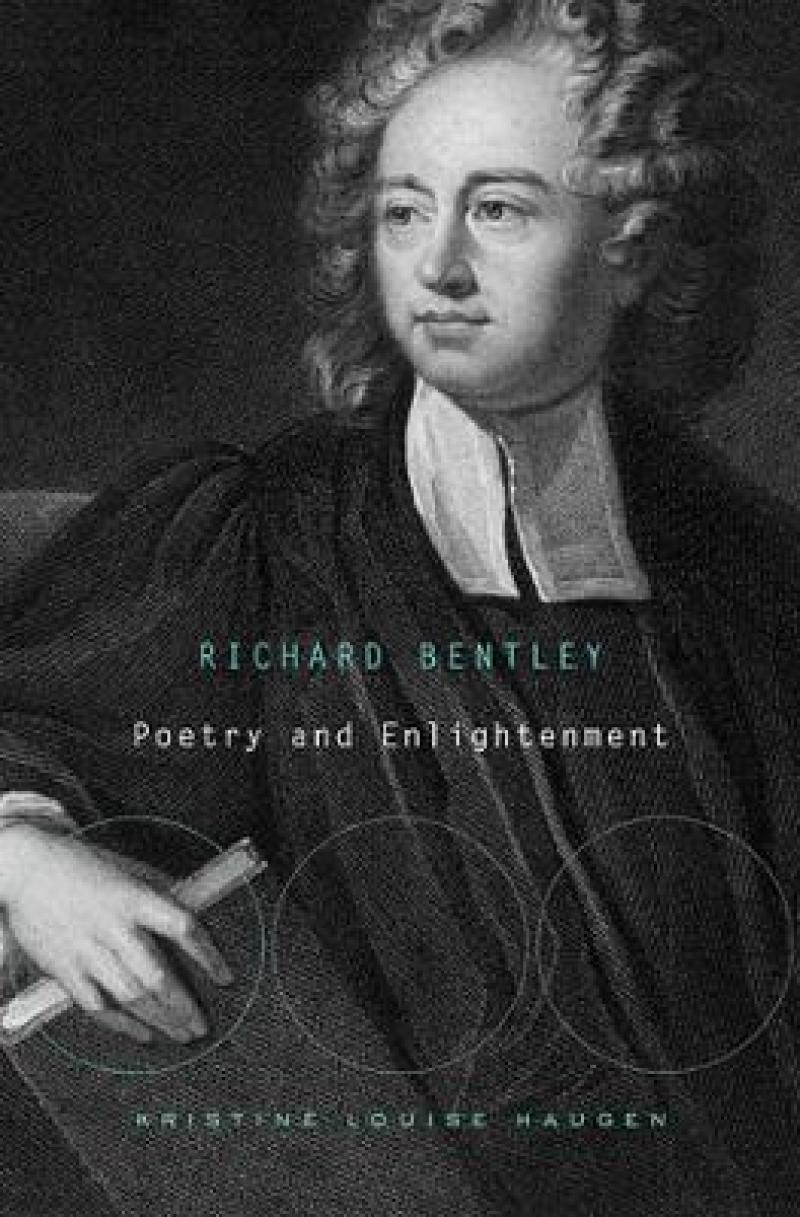Kristine Haugen gives us the most vivid portrait yet of a strange and fascinating man. At the same time, she traces--with learning, insight, and lucid, lively prose--the twists and turns of a great scholar's intellectual life. Richard Bentley's ambitions and accomplishments will never look the same.
- Anthony Grafton, author of <i>Worlds Made by Words</i> (2009) and other books,
As befits its subject, this book is ambitious, intelligent, and omnivorously erudite. Haugen writes immaculate prose, and blends together a dazzling range of technical accomplishment and contextual awareness to recreate the learned worlds in which Richard Bentley flourished. Bentley, arguably the most notable--and notorious--scholarly product of the English-speaking world, has not been served well by later students. Haugen not only triumphantly puts this right, but provides us with fresh and compelling new perspectives on early modern literary and intellectual history. In <i>Richard Bentley</i>, we should be grateful for a study that reshapes the paradigms through which we are able approach scholarly and critical endeavor from the 1670s to the 1730s.
- Rhodri Lewis, University of Oxford,
When J.H. Monk published his great <i>Life of Richard Bentley</i> in 1830, he could count on his readers' general knowledge of the scholarship he discussed. That knowledge has been largely lost, and in <i>Richard Bentley: Poetry and Enlightenment</i>, Kristine Louise Haugen is brilliantly successful in restoring and augmenting it. She has read extensively in the 16th- and 17th-century writings that influenced Bentley, in writings by his scholarly contemporaries of the early 18th century, and in modern studies of the period. All this material she has brought together in a lucid, well-argued discourse.
- Hugh de Quehen, Times Higher Education
[Haugen] has built her work, as she fully acknowledges, on the magnificent biography of Bentley that James Henry Monk published in 1830, and it is praise enough to say that her thorough and well-documented account supplements his without replacing it. The greatest strength of Haugen's book is its close attention to the scholarly achievements of Bentley.
- G. W. Bowersock, New York Review of Books
For Haugen, Bentley matters, for us as well as for the eighteenth century, in particular because of the professional model he provided for later editors and critics, and the rigor and energy of his close engagement with his texts. These are not in themselves new insights, but Haugen's learning and eloquence give them new clarity, extent, and force.
- Marcus Walsh, Times Literary Supplement
What made the classical scholar Richard Bentley deserve to be so viciously skewered by two of the literary giants of his day—Jonathan Swift in the Battle of the Books and Alexander Pope in the Dunciad? The answer: he had the temerity to bring classical study out of the scholar's closet and into the drawing rooms of polite society. Kristine Haugen’s highly engaging biography of a man whom Rhodri Lewis characterized as “perhaps the most notable—and notorious—scholar ever to have English as a mother tongue” affords a fascinating portrait of Bentley and the intellectual turmoil he set in motion.
Aiming at a convergence between scholarship and literary culture, the brilliant, caustic, and imperious Bentley revealed to polite readers the doings of professional scholars and induced them to pay attention to classical study. At the same time, Europe's most famous classical scholar adapted his own publications to the deficiencies of non-expert readers. Abandoning the church-oriented historical study of his peers, he worked on texts that interested a wider public, with spectacular and—in the case of his interventionist edition of Paradise Lost—sometimes lamentable results.
If the union of worlds Bentley craved was not to be achieved in his lifetime, his provocations show that professional humanism left a deep imprint on the literary world of England's Enlightenment.
